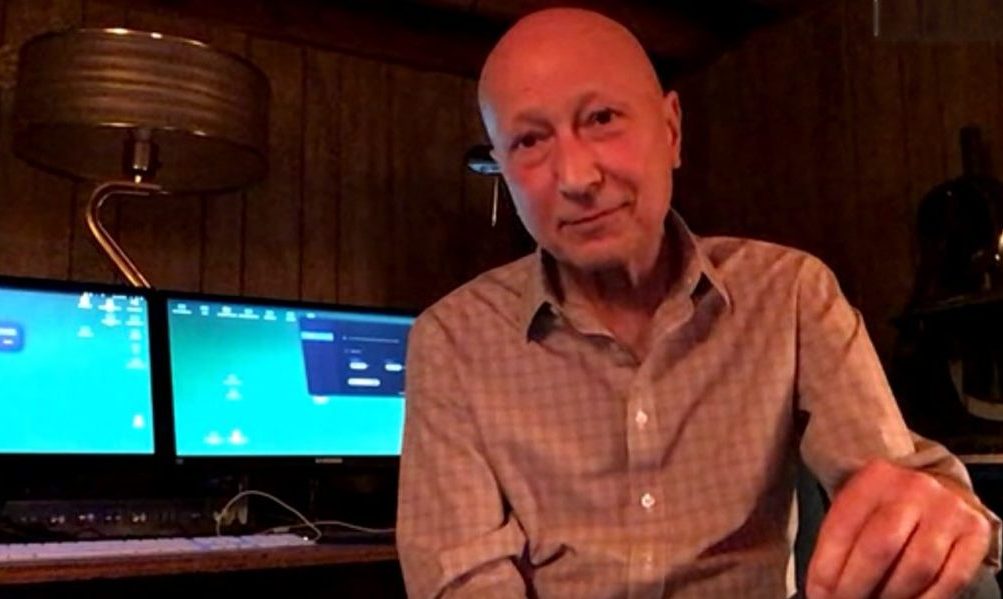Glass Harp’s Sferra Relies on Faith, Friends in Kidney Search

In holding down the rhythm section of Youngstown’s Glass Harp for more than 50 years, John Sferra has lived many a drummer’s dream — turning his passion into a career. But a few years ago, he received a diagnosis that put his touring days on hold. It was kidney failure.
Like so many living with that condition, Sferra is biding his time until a potential donor emerges, creating the opportunity for a kidney transplant that would improve his quality of life.
According to the American Kidney Fund, the average wait time for a kidney from the national deceased donor waiting list in the United States is 5 years, but this can change based on personal situations and/or the availability of a living donor.
Heidi Dietz, Sferra’s significant other, was inspired to start a Facebook group highlighting John’s journey when a friend had success finding a living donor for her husband after creating a similar social media page. The John Sferra Needs a Kidney group has since been inundated with familiar and not-so-familiar faces showering him with support.
Many of the encouragers are fans of Glass Harp, the three-piece Youngstown band that played in the early 1970s with the likes of Traffic, Yes, The Kinks, Humble Pie, Alice Cooper and Grand Funk Railroad. The band recorded three albums at the time and has reconnected for several reunion tours and shows in more recent years. John has been with several other bands as well.
His wait for a kidney so far has been about three years, filled with plenty of energy-depleted days. But Sferra continues to stay in good spirits and leans on his music abilities for hope. He explains further how he’s staying tough and maintaining a positive outlook.
Q&A with John Sferra
When did you find out you were going through kidney failure?
It was July of 2018. I went for a regular checkup and my doctor said to come back in 10 days. I went back for a blood test and a day later I had text messages, email messages and phone calls from my doctor telling me to stop taking my medication for hypertension and diabetes and to see him immediately. That’s when I discovered my kidney function had gone down.
At that time, my kidney function was around 20 percent and it slowly dropped over the next two years. By July of 2020, my kidney function was around 11 percent and that’s when I went to the Cleveland Clinic to have a catheter installed so I could begin peritoneal dialysis.
How does this issue impact your everyday life?
It’s different day to day. Some days I feel pretty good and that I can do things but other days I am really fatigued and cannot do too much. When you have kidney failure, you become anemic, which can sometimes make you feel cemented.
I don’t have the energy that I used to have, so it makes it difficult to do concerts along with all the traveling and rehearsals that come with it. I still play music and record sessions with no problem and would probably be able to do a concert at some point, but I would rather wait until I receive a transplant.
Are there any leads on a potential donor?
There have been a few people who have contacted me and started the process, but so far nothing is certain. Because of HIPPA laws, Cleveland Clinic does not give out information on the entire donor process, so there might be people searching that I don’t even know about.
A really important thing has resulted from Heidi starting the Facebook page. The prayers and outreach that has happened from friends and people I don’t know but know me through music has been great. All of the good thoughts have helped my attitude remain decent through it all.
I would have never created a page like that on my own saying ‘I’m looking for a kidney, folks,’ but I am grateful that Heidi started it.
How have you been staying tough and keeping your hopes up through it all?
What has been really helpful is my relationship with God, which has given me hope for the future no matter what has happened. My relationship with Heidi has also been really helpful. She keeps me going and down to earth.
The people I’ve met through music over the years have been really supportive as well as the music listeners I’ve met who tell me how much they enjoy a specific song of mine — that’s a big deal to a musician and it’s so uplifting.
I look back on it now and am thankful that this diagnosis was not as devastating as it could have been. I didn’t go into a deep depression about it and I try to avoid making myself scared or dwell on how devastating this actually is and how it has changed my life.
